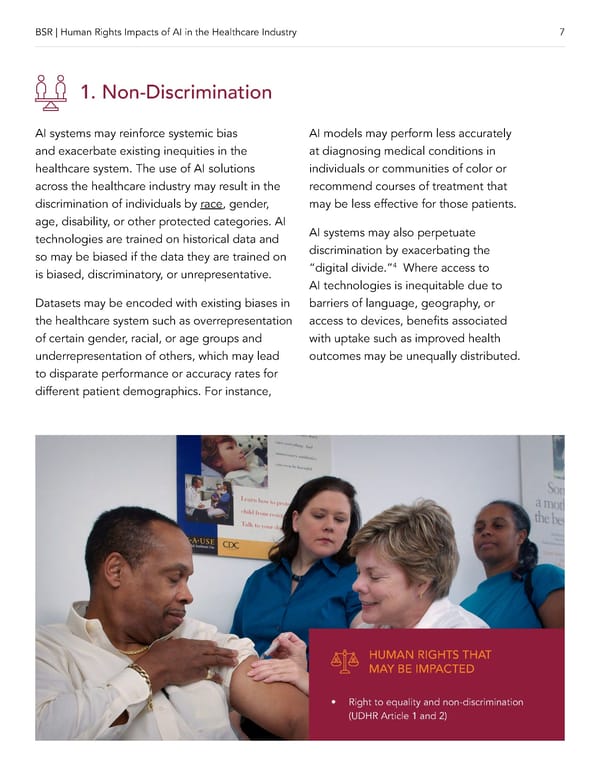BSR | Human Rights Impacts of AI in the Healthcare Industry 7 1. Non-Discrimination AI systems may reinforce systemic bias AI models may perform less accurately and exacerbate existing inequities in the at diagnosing medical conditions in healthcare system. The use of AI solutions individuals or communities of color or across the healthcare industry may result in the recommend courses of treatment that discrimination of individuals by race, gender, may be less effective for those patients. age, disability, or other protected categories. AI technologies are trained on historical data and AI systems may also perpetuate so may be biased if the data they are trained on discrimination by exacerbating the 4 is biased, discriminatory, or unrepresentative. “digital divide.” Where access to AI technologies is inequitable due to Datasets may be encoded with existing biases in barriers of language, geography, or the healthcare system such as overrepresentation access to devices, bene昀椀ts associated of certain gender, racial, or age groups and with uptake such as improved health underrepresentation of others, which may lead outcomes may be unequally distributed. to disparate performance or accuracy rates for different patient demographics. For instance, HUMAN RIGHTS THAT MAY BE IMPACTED • Right to equality and non-discrimination (UDHR Article 1 and 2)
 AI and Human Rights in Healthcare Page 8 Page 10
AI and Human Rights in Healthcare Page 8 Page 10